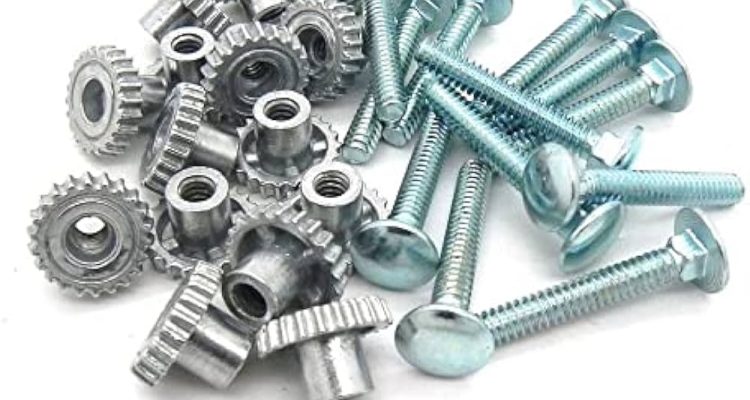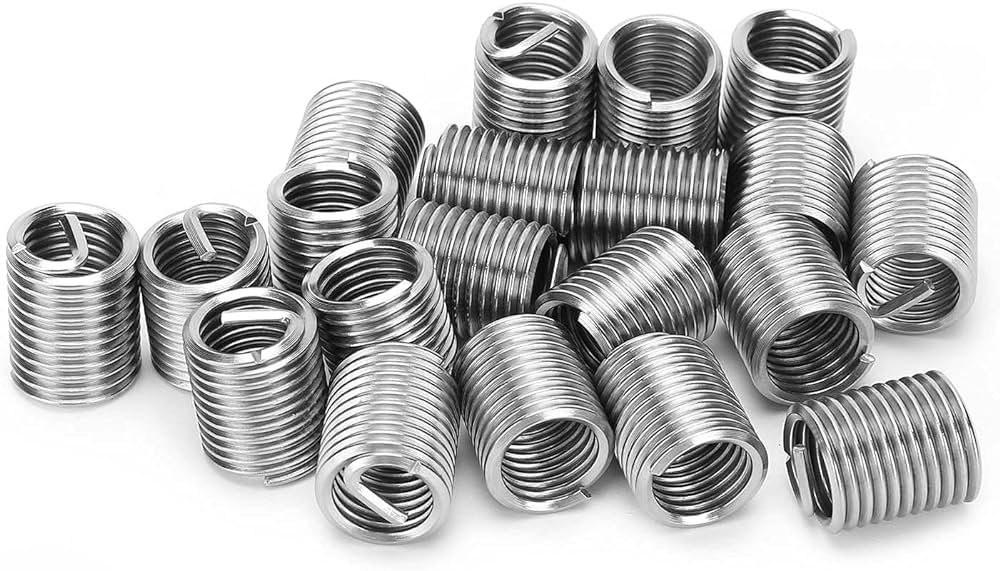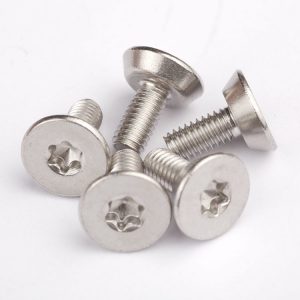
How to discover screw factories in my region
Utilize various resources like online directories, trade shows, industry associations, networking events, and government resources to find local screw factories.
Table of Contents
ToggleIdentifying Screw Factories in Your Region
Defining Your Screw Needs
thubneeds, Knowing your specific demands is essential before you start searching for screw factories in your area. This includes determining the type of screw, defining the parameters such as size, material, threading, head type, etc. For example, if you are in the construction business, you might need heavy-duty screws that are resistant to corrosion.
thubSearching for Industrial Zones
You need to identify the existence of industrial zones or zones focused on production in your area and try to research available factories. In many cases, types of factories have gathered around each other, and by exploration, you can simultaneously be introduced to two or more screw factories.
heedNetworking With Industry Professionals
Try to connect with peers in your industry who have already found screw factories or are in the same position as you. Participation in relevant exhibitions, conferences, or seminars will be helpful, and online forums are the second good place for swapping information and seeking advice.
thubUsing Business Directories
Try to use business directories with a focus on industry and manufacturing areas. If the directory contains a heading based on the products or industries, it will be easier to choose the appropriate results by selecting screws. In this step, you may directly compare the information provided by the factories with the needs you have discovered.
thubBuilding Relationships With Trade and Industrial Associations
Trade or industrial associations concerning hardware products, construction, or screw manufacturing will also help you achieve more information and perhaps connect you to the factories. Such associations usually update member directories and publish reports and presentations, seminars, and news about their member factories.
thubChecking Online Marketplaces
In the last decade, several online marketplaces specializing in the industrial area have appeared. By using a combination of Google searches and search filters such as Alibaba, ThomasNet, or MFG.com, small manufacturers may be found through these online marketplaces. In the case of filters, it is possible to see the specifications of the manufacturer or products beforehand.
thubContr-o-ol Visits and Do Diligence
Try to visit the found factories and see everything on your own. You should check their production, control half-fabricated items, final packing system, and testing system. Also, you need to check the provided certifications, testimonials, or references, and past customer lists.
thubAsking for Samples and Quotes
Before making a decision, always ask for examples and receive quotes from as many screw factories as possible. Decide on your needs and try to compare quotations in terms of weight, time of manufacture, and other required conditions.
thubBuilding a Long-Term Relationship
Look for creating a long-term business relationship with the screw factory based on honesty and shared benefit. Both screw factories and business clients should always be tended to keep in regular contact and to inform each other about the relationship situation.

Thread Reducing Nut
Exploration of Domestic Screw Producers
Researching Local Manufacturers
Begin your exploration by thoroughly researching domestic screw producers. Utilize online resources, industry publications, and business directories to compile a list of potential manufacturers within your country. Pay close attention to their specialization, production capacity, and reputation in the market.
Assessing Manufacturing Capabilities
Once you’ve identified a list of domestic screw producers, delve deeper into their manufacturing capabilities. Evaluate factors such as machinery, technology, and workforce expertise to gauge their ability to meet your specific requirements. Look for manufacturers equipped with modern facilities capable of producing high-quality screws efficiently.
Analyzing Product Portfolio
Analyze the product portfolio of each domestic screw producer to determine if they offer the types of screws you need. Consider the screw sizes, materials, coatings, and specialty options. Look for manufacturers with a diverse range of products to accommodate various industry needs.
Reviewing Quality Control Measures
Quality control is paramount when selecting a screw producer. Investigate the quality control processes implemented by each manufacturer to ensure consistency and precision in their products. Look for the ISO 9001 certification, which promotes high-quality standards.
Requesting Samples and Testimonials
Request samples of screws from potential domestic producers to assess their quality firsthand. Conduct testing to evaluate the strength, durability, and dimensional accuracy. Additionally, seek testimonials or references from past clients to learn about their satisfaction with the manufacturer’s products and services.
Evaluating Lead Times and Logistics
Consider lead times and logistics when choosing a domestic screw producer. Evaluate their ability to meet your order promptly and reliably. Take into consideration their production capacity and shipping capabilities. Look for manufacturers with efficient logistics networks to ensure timely delivery.
Negotiating Terms and Pricing
Once you select your top choices, begin negotiations with domestic screw producers. Discuss the terms, such as pricing, payment terms, minimum order quantities, and delivery schedules. Strive to balance affordability and quality to maximize your benefit.
Establishing Long-Term Partnerships
Lastly, arrange to establish long-term partnerships with the selected domestic screw producers. Develop open communication and mutual trust. Regularly monitor the partner’s performance and provide feedback. Your cooperation should benefit the producer and you; therefore, strive to ensure constant improvement.
If you carefully follow these steps, you will successfully explore local manufacturers of screws and identify the most suitable producer. Remember that your priorities include high quality, reliability, and long-term value when making the choice.
Criteria for Selecting the Right Manufacturer
Quality Standards
Manufacturers with high quality standards will produce good products. Usually this is indicated by such quality management certification as ISO 9001. It also would be a good idea to know about the manufacturer’s quality control processes as well as evaluation and inspection procedures.
Production Capacity
This factor evaluates whether the manufacturer will be able to timely deliver required product. There are such important factors as the volume of daily, weekly or monthly output, manufacturer’s size as well as its ability to grow and reduce throughput. It is important that the company has enough big size in order to accommodate your orders but not too big to delay them. As lean manufacturing principle states – the best way is to reduce lead times.
Technology and Machinery
Technology used by a manufacturer is also an important factor as it allows to stay competitive and innovative. It is a good idea to visit company’s facilities and look at what type of equipment they possess. Advanced machinery usually is able to provide good quality, reliable and precise end product. It also requires less manpower and is more automated.
Customization
Sometimes standard screws do not work because of PCP, technology, size or other specific of the equipment. So it is necessary to find a manufacturer that is willing to produce screws exactly as required: with specific size, material or coating.
Lead Time
Also it is related to production capacity, but it is also important to check whether manufacturer has any flexibility regarding lead time for urgent orders or for ignoring fluctuations in demand.
Pricing
Of course pricing is also important. However, we believe that price should go after value. It is always better to pay a little bit more in order to have a reliable and quality manufacturer that will deliver products on time and for long years.
Communication
It is always important that the company you are dealing with is responsive. You should know who to contact when something goes wrong and how to get the required information about your orders.
Reputation
Last but not least, you should know the reputation of the manufacturer you are working with. Normally, good manufacturers have testimonials from the clients they worked with. So also it is a good idea to call representatives of other manufacturers in order to check their satisfaction and their work with potential manufacturer.
Steps to Connect with Local Manufacturers
Research and Identify Potential Manufacturers
The very first step to finding a local manufacturer is conducting research. Look for local manufacturers’ encyclopedias within your sector and read industry publications to find potential companies. Consider companies near your location to reduce potential problems associated with long transportation. Look for companies specializing in your industry in order to make a shortlist. If a company has an impressive professional reputation, place them at the top of the shortlist. In case you are unable to find companies, visit the store, hold marketing research, and study the labels very carefully.
Attend Industry Events and Trade Shows
Numerous exhibitions and industry events invite local manufacturers as participants and give an opportunity to contact them personally. Large and small manufacturers are frequent participants in industry events. Go to relevant exhibitions, conferences, and networking events and meet professionals in the industry who may become your manufacturing partner. Share your ideas with them, take their business cards, and let them see yours. Ask about manufacturing potential, deadlines, price details, and other aspects of the collaboration.
Utilize Online Resources and Directories
There are a variety of online resources and companies focusing on listing and providing information on local manufacturers. Conduct research on websites such as ThomasNet, MFG.com, and local chamber of commerce directories. Use different search filters including selecting companies within a specified distance from your location. However, this method can be risky so be prepared to verify much of the information you will find.
Visit Industrial Zones and Manufacturing Clusters
If you believe there are local manufacturers in your area, do not hesitate to go and see them. Industrial zones specialize in certain types of manufacturing and the concentration of manufacturers can be found in these areas. Visit these clusters and start speaking with factory workers and managers you may encounter.
Network with Industry Peers and Professionals
Networking can also be a good online tool for research. There may be forums on the Internet created for professionals in your field or just online forums specializing in potential partnering companies. Ask your colleagues about local manufacturers and whether they can recommend any.
Engage with Local Business Associations
Many local and region business associations hold seminars, workshops, and networking events that you can also attend. Contact local business associations and let them help you connect with potential manufacturers. Ask for introductions or personal emails and phone numbers.
Reach Out Via Email or Phone
Prepare an email highlighting the important aspects why you have to work together. Keep working on the value of your ideas and send an email with your requests, details of your company, expectations of the potential results, and your complete contact information.
Schedule Site Visits and Meetings
Ask for a visit to manufacturer’s location, tour the facilities, and ask all the questions that will be bothering you about your future projects. If possible, speak with the company’s staff and visit their shopsиг.

M4 Screws Custom Made
Finalizing the Manufacturer Selection
Reviewing proposals and quotations
Finally, it is crucial to review in detail all the proposals and quotations provided by the shortlisted manufacturers. Such an analysis should consider pricing, lead times, production deliveries, and other features important for the given company. The purpose is to understand what value is provided and what the trade-offs are in the given scenario. Cost-effectiveness at times should not be the most critical criterion, and other non-financial aspects, such as quality and consistency, may be critical for the long-term success of the model.
Due diligence
A careful due diligence check should be conducted for every manufacturer identified as a potential partner. The fact that a company was shortlisted and chosen for final negotiations implies it already has enough potential, but now it is important to ensure that the chosen firm can deliver on its promises. Checking references, certificates, and past performance checks is critical to understanding if the chosen manufacturers are truly capable of delivering the given type of products. Additionally, this information can also be used for the better formulation of the negotiation strategy, as the better a company knows its future partner, the better it can predict and assess the risks.
Negotiations
After reviewing the information and ensuring that the chosen manufacturer is capable and reliable one should start negotiations. In these talks, the company will have to find agreement on many issues, including the final price, payment terms, delivery schedules, guarantees, and intellectual property issues, among others . The purpose of negotiations is not only to safeguard company interests and achieve its targets. All terms and agreements should be mutually acceptable to allow a long-term partnership based on mutual respect and efforts. At the same time, a certain degree of checks and balances should be reflected in the contracts, ensuring sufficient levels of accountability for both sides.
Samples and prototypes
Finally, sampling and prototyping, as well as approval for these tests, should be demanded from the chosen manufacturer. These samples can be used for testing and ensuring that the final version of the adapted solution is truly conducive to the company’s needs. Use this opportunity similarly to the analysis of a manufacturer’s profile. Provide as much feedback regarding these samples and prototypes as possible. This will correct them and improve the final product before it is too late to make any changes.
Strategic review requirements
At this phase, a strategic review of the entire model should be conducted to decide whether or not the case should proceed. They will include an assessment of the communication channels and support measures established by the chosen manufacturer. Responsiveness, availability of support, clarity of communication will be the critical point here, helping the company assess the level of troubles in case misunderstandings should arise in future project execution. Details of work and expectations should be communicated at this phase, serving an additional way to assess a manufacturer’s communication capabilities.
Contract requirements
A contract, or set of contracts, should be formulated based on the results of the due diligence and negotiation phases. These contracts will specify the terms and conditions of the relationship as well as the responsibilities and obligations for both parties. It is here that legal support is particularly crucial, as lawyers should check if these contracts protect the company’s interests sufficiently. Key aspects of these contracts should be consulted as a part of this check. These include confidentiality agreements, assessment of liability position, assurances regarding disputes if they arise, and terms of the technology transfer. Draft solid contracts on the basis of the requirements provided in this session.
Long-term relationship
Finally, the company should not limit its relationship with its manufacturing partner to isolated batches of products. It should work to establish a long-term partnership based on mutual respect and help. For this purpose, it should provide regular feedback and communication as well as develop joint initiatives of continuous improvement. This should become an initiative based on shared interests and values, providing wins to both companies.


5 Key Steps To Comprehensive Bolt Testing
Explore the com…

What is the difference between half dog and full dog set screws
Half dog set sc…
